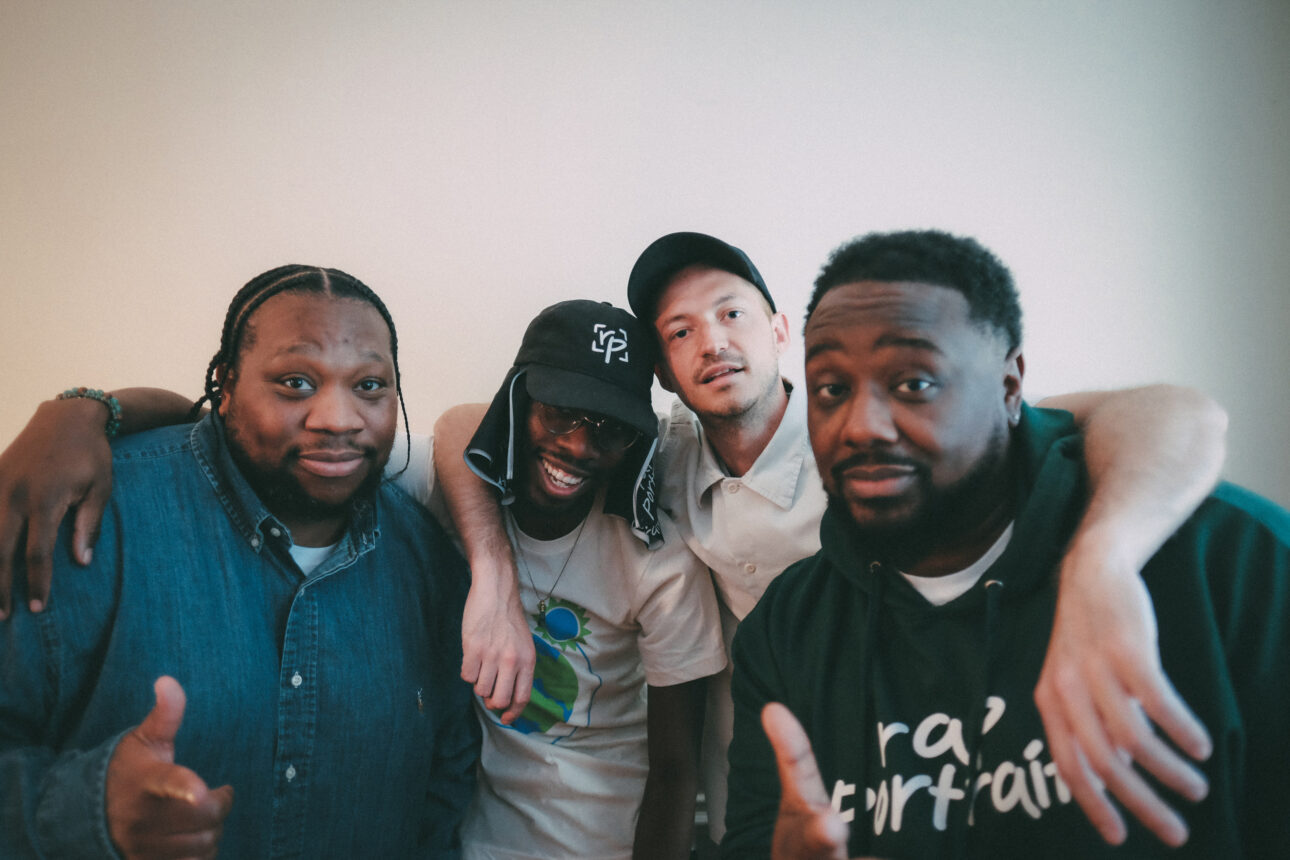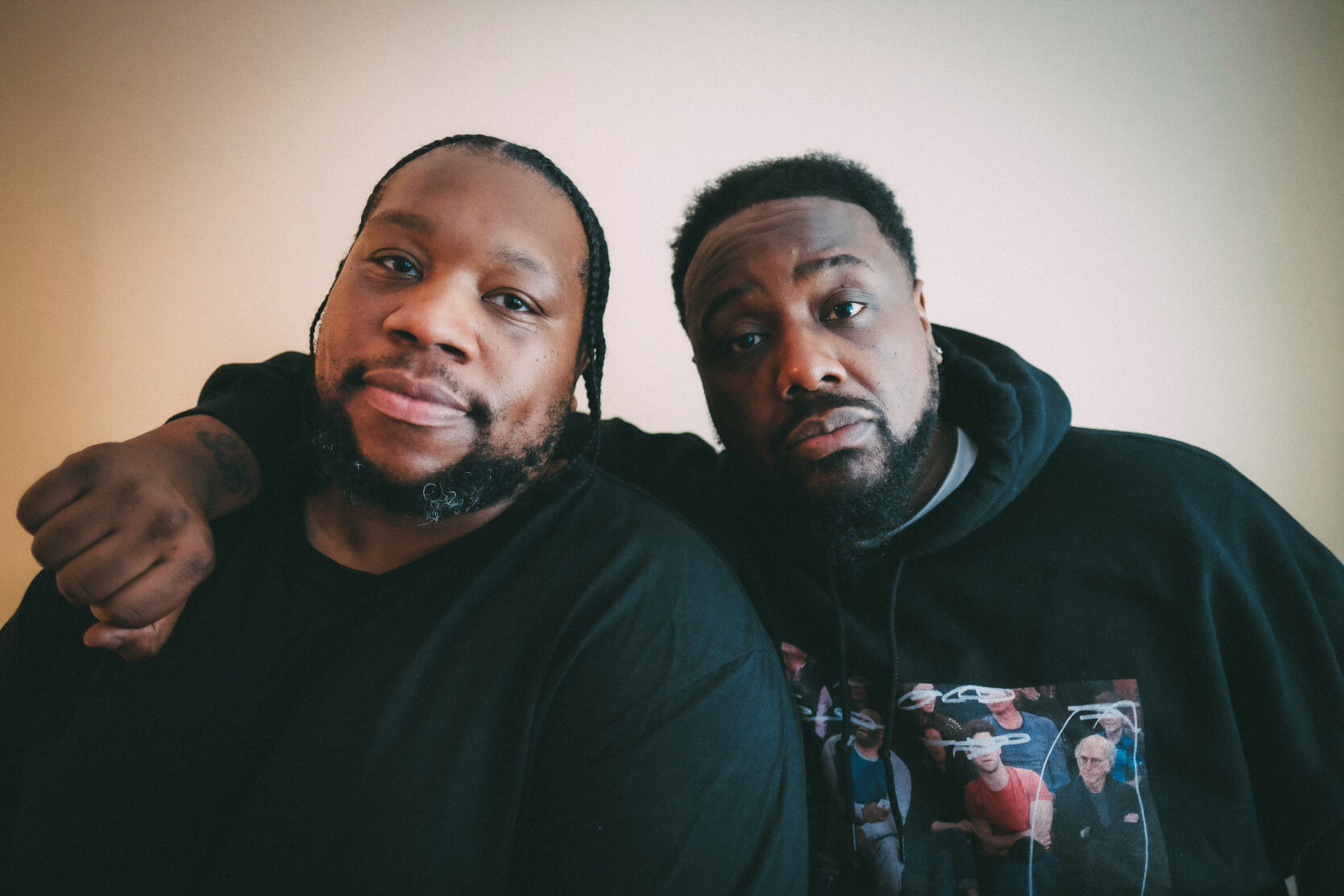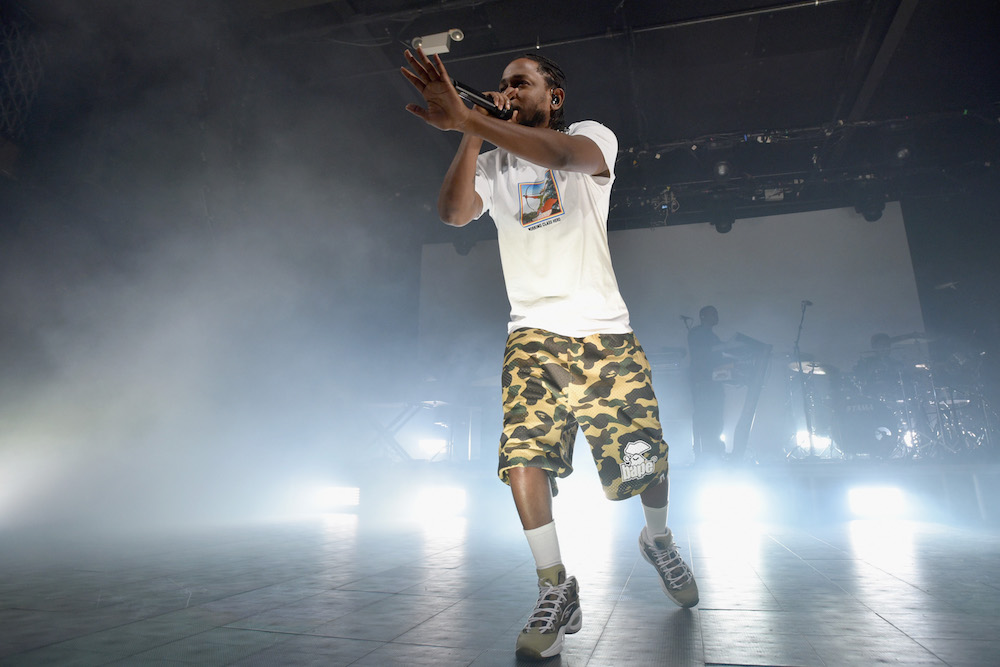Phonte Coleman and Rapper Big Pooh—collectively known as Little Brother—didn’t speak for years.
After finding initial success in 2003 with their debut album, The Listening, the North Carolina-bred duo signed a major label deal with Atlantic Records for 2005’s The Minstrel Show, but the project wound up with arguably underwhelming sales. Complicating matters was the crumbling relationship with their producer 9th Wonder (who’d been part of the group since the beginning) and the public’s failure to grasp The Minstrel Show’s satirical vision. While Little Brother delivered two more albums, 2007’s Getback and 2010’s Leftback, they formally announced their breakup shortly after the latter’s release due to internal conflicts. It would be more than five years before they’d talk again.
In 2016, following the death of A Tribe Called Quest MC Phife Dawg, Pooh reached out to Phonte and they managed to make amends. As their wounds healed, Phonte, Pooh, and 9th Wonder reunited for the first time in 11 years at the 2018 Art of Cool Festival in their hometown of Durham. Just when it looked like Little Brother would be a trio again, 9th Wonder backed out of participating in their reunion album, May The Lord Watch, the following year.
In the duo’s new documentary, May The Lord Watch: The Little Brother Story, Phonte (or Té) and Pooh detail the rise, fall, and resurgence of Little Brother from their unique perspectives. Speaking to SPIN in a recent Zoom interview, they discuss what led to the film, their current relationship with 9th Wonder, and how they were able to rebuild their bond.
Why was now the right time to tell your story?
Phonte: We started this in 2018, so this has been five years in the making. We are approaching our 20-year anniversary, and it’s also Hip-Hop 50. I think telling this story at this point in time, there’s a curiosity about yourself that doesn’t really happen until you get into your 40s. There’s a certain level of self-examination that you just don’t have the tools to do. Had we tried to do this 10 years ago, I don’t think we would have had that level of curiosity and real self-examination. So it just felt like the right time to tell the story, because we finally understood what the story was.
What was the hardest part about making the documentary?
Phonte: You have to decide—even though you’re telling the facts, there still has to be a story and you still have to decide what story you’re going to tell. You have to streamline and decide what it is you’re going to talk about. And so I think it just took us five years to really figure that out and have the emotional availability to really talk about ourselves in that way.
Somebody says in the documentary that there’s a difference between growing old and maturing. Your 20s are hard.
Phonte: [Your] 20s are trash [Laughs].
Pooh, what about you? Why was the timing right for you?
Rapper Big Pooh: All the things Té said, and also I think it was important for us to be able to tell our own story. We didn’t want to look up one day and we’re doing an Unsung or a Behind The Music and somebody else is dictating our story. We wanted to be the ones to tell the definitive Little Brother story in our voices. Then you have the fact that we’ve all lost people near and dear to us, and we’ve been losing people near and dear to us as far as music is concerned. I had my own scare, and there’s some things that make you reflect and make you understand no time is better than now. For me, this was important from the simple fact that tomorrow’s not guaranteed, so I wanted people to understand who I am, who I was, and who I am now from us and not nobody else. That was important to me.
Speaking of, you talk about having a pulmonary embolism that could’ve, quite frankly, ended your life had you not gone to the emergency room. What lightbulb went off when that happened?
Rapper Big Pooh: That was me facing my mortality at that point. Even though you think you understand life is fragile, when you’re faced with your own situation, that’s when you truly understand how important every day is. And I think that was the beginning of me understanding that—not fully—but how important every day is. I really had to start doing my own self-searching and my own work to really understand who I was and who I wanted to be. Up until that point, I was just trying shit. I was just out there trying to figure things out. That was the turn of me actually maturing after that incident. I was living by the seat of my pants. That was a month before my 33rd birthday. I literally got out of the hospital two weeks before my birthday.
In the doc, Phonte, you admit you didn’t reach out to Pooh when he was in the hospital. How did it feel seeing Pooh’s reaction, and do you wish you’d handled that differently?
Phonte: It’s definitely something I would have done differently. One of the things of the film is brotherhood and how that means different things to different people. And also conflict and how that means different things to different people. For me at that time, the conflict was, “If we ain’t fucking with each other, then we ain’t fuckin’ with each other.” When I got the call that Pooh was sick, it was never a thing of like, “I’m glad” or whatever. There was a moment like, “Man, I hate to hear about that. I’m gonna pray for him and keep it pushing.” But in my mind, I didn’t think he wanted to hear from me. I didn’t think me reaching out mattered to him because of where we were. We had another version of the scene in the film where I was talking more about how I didn’t realize how severe his position was—because it wasn’t Pooh reaching out to me, it was another mutual friend of ours letting me know. We had that in the film at first, but after watching it, me and Pooh talked and decided to take it out. We didn’t need to have a whole bunch of, “Well, see, what had happened was…” No, own your shit. Your man was in the hospital, and you didn’t call him. Hindsight is always 20/20. Emotionally that’s where I was at the time, and the only thing I could do was just own that and grow past it.
The 9th Wonder relationship was a big focus on the film. For lack of a better word, it’s complicated. But at the end, you wished him well and took the high road. Did it take a long time to get to that place?
Phonte: My cousin Tressie McMillan Cottom, who’s featured in the film, wrote something down one day like, “There’s a difference between telling the story from the wound versus telling it from the scar.” If you’re writing a story about something when it’s fresh, that is going to be a very different story. You need some time away from it to examine it. The film we started making in 2018 is very different than the one you guys see, which we started making in 2022. When the pandemic happened, that just gave us time to process so much, and we had to bring that new understanding into the film. It just took time for us to sit back and say, “Well, this is where we messed up. This is where I could see how maybe he would have perceived it this way or whatever.” Just having a more panoramic view of everything helped. It took that time. Our history with 9th is our history with him, but ultimately this was a film that we made with love. We would never want to put out something that’s incendiary or inflammatory, or to make something that is salacious or whatever. That’s a disservice to the music. That’s something that we would never do. The hero of the story is the music, and that’s what we wanted to serve. I think we did that. I’m just telling our history.
Rapper Big Pooh: Life is complex. Relationships are complex. It’s one of those things, like Té said, we just wanted to make an honest film, a fair film, and be fair to everyone in the film, including ourselves. That was the goal. I’ve never heard the “writing from the wound” phrase, but that definitely works here.

There would have been a different tone if you talked about it in 2005 or 2008 [Laughs].
Phonte: [Laughs] Oh, my god.
Rapper Big Pooh: I’m in a more emotionally mature place. Having more understanding allowed for a way different outcome, an honest and fair outcome.
It was a class act. You also talk about The Minstrel Show album and how some people didn’t understand it was satire. But do you think it’s still happening in 2023?
Phonte: It’s a different time. Now we have outlets where people get to understand who we are and understand our humor in a way that wasn’t available in 2004 and 2005. The only outlets were the radio, BET, MTV’s TRL, or whatever. There weren’t podcasts or long-form outlets for us to introduce ourselves to people in a way they understood who we were, where we were coming from, and what we were trying to accomplish. A lot got lost in translation. We were also caught in the middle of a label transition and an industry transition. And then you come out with this underground group’s major label debut, and we’re basically hating on the very system we’re a part of.
I mean, you weren’t wrong.
Phonte: It’s not a thing about being wrong. The thing I learned—and this is why I don’t talk about music online—when you’re a part of an industry, people view you talking about the industry in any negative way as bad form. That was the biggest thing. It just looked like bad form that we get this opportunity…
And then you’re kind of shitting on it?
Phonte: Right [Laughs].
You were also competing with the shiny-suit era, which you note in the film. You weren’t doing what Lil Jon was doing. Your idols were the Native Tongues.
Phonte: There were very narrow boxes, and if you didn’t fit into one of those boxes, then you were just discarded completely. The lesson in Little Brother, and what I hope people take away from the film, [is that] it’s a story about outsiders trying to find a way in. Now more than ever, I think that’s something that resonates with artists because now it’s the opposite. You have every outlet, and it becomes harder to cut through the clutter. A big part of our story was seeing the disillusionment that came with signing with a major label. Atlantic was fair. I’m extremely grateful for the time I got to spend there because it taught me a lot. It was an education. What I took from that education was [that] it’s better for me to do it by myself [Laughs].
And that was a big point of contention between you and Pooh. But now we see this growth and this friendship that is flourishing. What is your relationship like today?
Rapper Big Pooh: We definitely talk regularly—if not every day, every other day. Little Brother means something different now than it did in 2005. We recorded an album then toured, recorded an album then toured.
Phonte: Little Brother is a business now.
Rapper Big Pooh: Exactly. When I A&R’ed Lute’s [Dreamville artist] album, Phonte came in and assisted with that. We take on other things than recording the album and touring the album.
Phonte: During that time we were apart from 2010 to 2019, our garden was left unattended. When we started working again and getting the rights back to our old music, Pooh and I realized that we built something that we can never leave unattended. We’re part of something that is far bigger than us as individuals, and we still have to work together to serve that.
You can’t just let it go.
Rapper Big Pooh: The people ain’t gonna let it go.
You’ve lasted 20 years. How does that feel?
Phonte: It’s insanity. We never in our wildest dreams would have saw it coming. It’s really a blessing. I can’t say any better than that.
What does the future look like for Little Brother? Will we get another album?
Phonte: Yeah, definitely more music. Right now, we just put out this doc. We finished it on Nov. 7, had our first screening on Nov. 9, and released it Nov. 24. It’s still fresh for us. We gonna ride the doc and what comes next, definitely more music. We shot our Made in Durham block party. That will be coming. We’re working. We’re at a point where we really understand not just the power of the Little Brother brand and the power of Little Brother, but more so we understand our responsibility to uphold it. That was something I don’t think we got in our 20s.
What do you admire about Phonte, and what do you admire about Pooh?
Phonte: What I admire most about Pooh is his work ethic. I just admire, as an MC, that he’s the sledgehammer. I’m the chisel; he’s the sledgehammer. He has one of my favorite voices in hip-hop because he’s able to cut through any kind of track. My rap voice is just a hair above my speaking voice, but Pooh’s voice cuts through everything. That’s something I admire.
Rapper Big Pooh: I admire his fierce loyalty, independence, and his “get shit doneness.” Once he starts on something, it’s going to get done. That’s something I’ve always admired. As an MC, his layers and thoughtfulness with everything he says. That’s why he’s the chisel.





